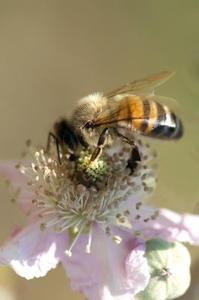Europe
June 12, 2017

The news, part of the country’s Ecophyto plan to halve pesticide use, comes as one of ENDURE’s UK partners, Rothamsted Research, issued a position statement warning: “Maintaining production of many UK crops is at risk if neonicotinoids, the pesticides linked with harming bees, are more widely restricted or banned completely.
“Furthermore, if groups of chemistries are limited by legislation, the remaining groups will be more widely used, resulting in an increased risk of pests developing resistance to them,” continued the statement from Rothamsted, the longest-running agricultural research institute in the world.
Rothamsted says its concern follows the release of draft proposals by the European Union to replace its temporary restriction on the use of three neonicotinoids on crops that flower, introduced in 2013, with a widespread ban across Europe.
In the statement, the institute chronicles the public debate over the past four years about the use of pesticides and, in particular, the effect of neonicotinoids on bees, whose important role as pollinators of crops and flora in general is not disputed. Rothamsted “laments the lack of evidence for the pesticide restrictions, drawing attention to the number of reports by vested interests from both sides of the debate”.
Meanwhile, France’s Ecophyto Research and Innovation steering committee issued its call for projects which can fall into three types: exploratory, demonstration or incubation and broader interdisciplinary research and development projects.
The call is focusing on two particular fronts: emerging solutions which have not been widely adopted (for example, requiring technical improvements or lacking the references that would lead to greater adoption) and new innovatory approaches to boost the solutions available to farmers.
For more information:
- Read about the Ecophyto call (in French) here
- Read the Rothamsted Research position statement here